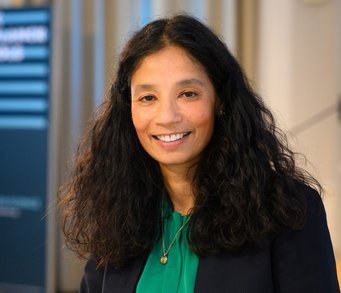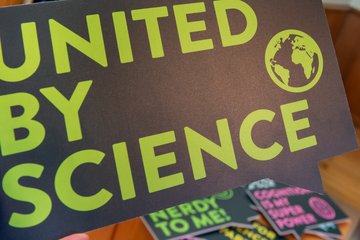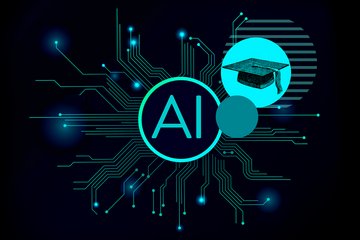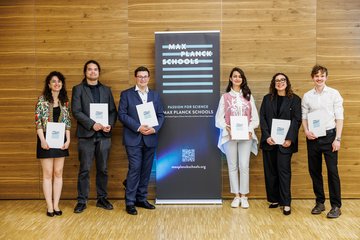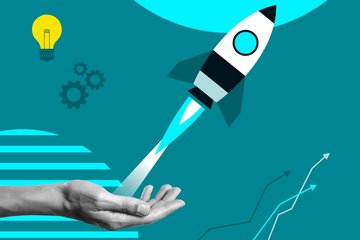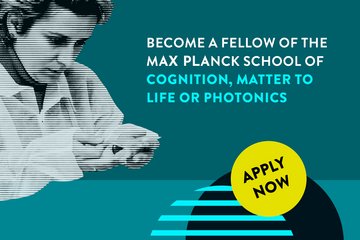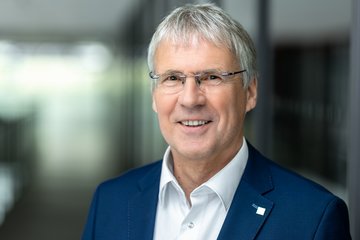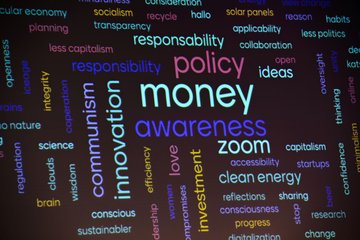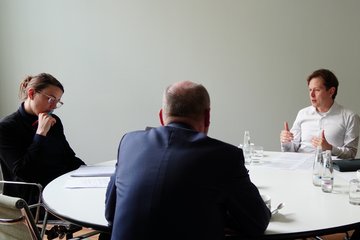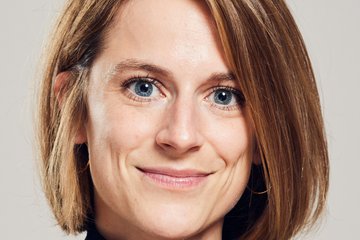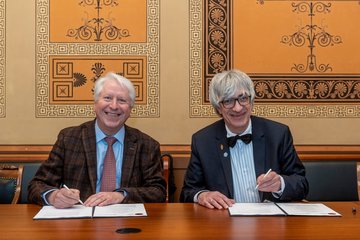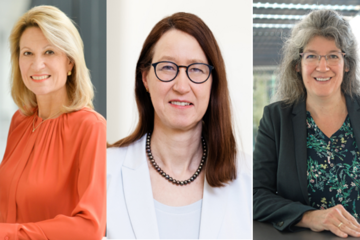“Make our leaders approachable”
Leading in Top-Level Science - Interview with Asifa Akhtar
Asifa Akhtar is Vice President of the Biology and Medicine Section of the Max Planck Society and Director of the Max Planck Institute for Immunobiology and Epigentics in Freiburg. In this interview she talks about her time as a PhD student, her career and what is needed today to make leadership positions more attractive for young scientists.
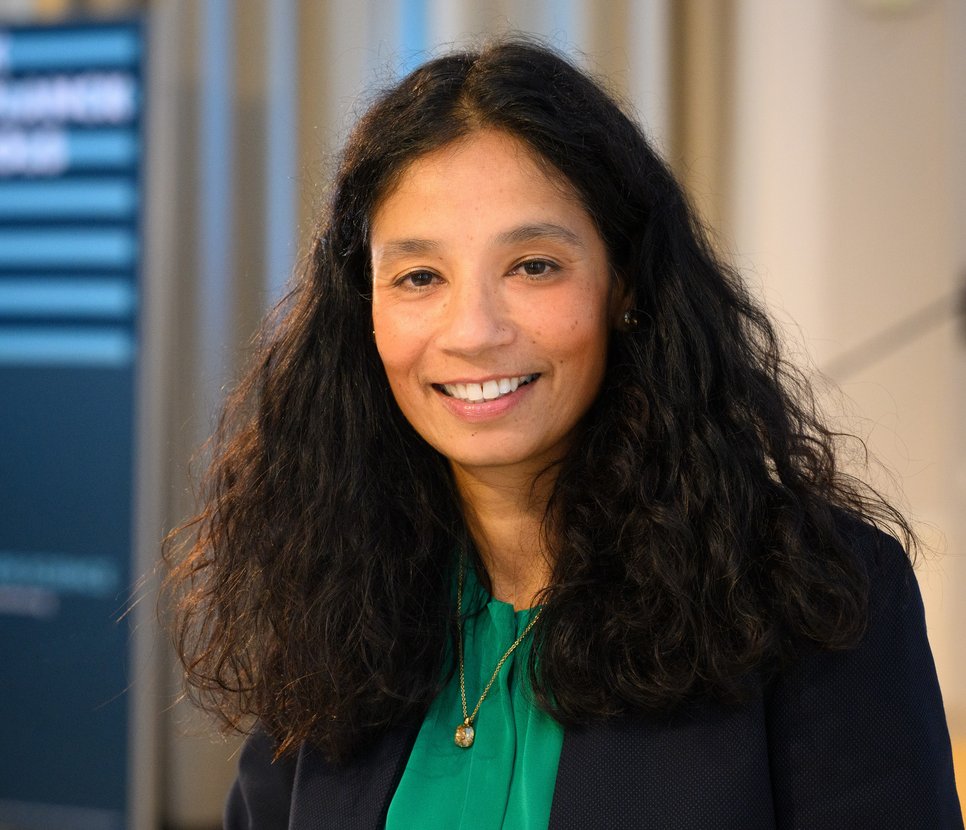
Asifa Akhtar obtained her BSc in biology at the University College London in 1993, and her Ph.D. at the Imperial Cancer Research Fund, London, in 1997, studying transcription regulation. She continued in the field of chromatin regulation as a postdoc at EMBL (Heidelberg) and the Adolf Butenandt Institute (Munich). In 2001, she became a group leader at EMBL. Her laboratory studies chromatin and epigenetic mechanisms, especially focusing on the regulation of the X-chromosome. In 2009, she joined the Max Planck Institute of Immunobiology and Epigenetics, where she is currently a Director, heading the Department of Chromatin Regulation. Asifa Akhtar is an EMBO member and member of the German National Academy of Sciences Leopoldina. She received the Wilhelm Feldberg Prize in 2017, the Gottfried Wilhelm Leibniz Prize in 2021 and Christa Šerić Geiger Prize in 2022.
Christiane Walch-Solimena (CWS): Asifa, thank you very much for taking the time to discuss with us about your journey to becoming a successful scientist and Vice President of the Max Planck Society. As you know, the Max Planck Schools are a joint graduate program for highly ambitious PhD students. So, for a start, how do you remember your PhD time? And when did you first have the feeling: Science is really my thing?
Asifa Akhtar (AA): Oh, I remember it very well: I first got interested in science during my undergraduate studies in London. We got to do these practical courses and spend time in the lab – doing experiments was just super cool. To be honest, I did not have a clear career plan in mind, apart from the fact, that I wanted to study. At UCL in London, I got the possibility to follow a number of topics around molecular biology and do experiments myself – that was just super exciting for me. Even banal experiments, where I did not know whether they would work out or not and just the fact that something was in my hands, was thrilling to me. To me this was like the best thing on the planet. And that was when I realized, that science is really my thing and that I wanted to pursue a PhD.
CWS: So, it was the creative process and the hands-on work in the lab that captivated you?
AA: Exactly. For my PhD, I applied to the Imperial Cancer Research Fund (ICRF), which is now part of the Crick. To get there, I particularly needed two things: Perseverance and the ability to promote myself. As I was not European, I was disadvantaged and it was very important for me to work in an organization that would pay part of the education. After my application, I was waiting for people to get back to me whether I will get in or not. And at some point, I just picked up the phone to call these people and said: “Look, I just got my first-class degree and all these awards, would this help you make a decision?” And this self-promotion – or maybe you could also call it desperation – was how I ended up getting the position I really wanted at ICRF. So, as a first rule of thumb: If you don't try, you will not get it. Reflecting on this all these years later, I think I had a lot of courage.
CWS: That brings us to the question what made you persist. Many people have a difficult time during their PhD – what made you stick to it?
AA: For me it was persistence and self-motivation. The will to achieve something. In order to go up the ladder in any profession, you will have to work like hell. That was my second realization: If I don't fight for myself, nobody will. You basically become very aware of your environment. Retrospectively, I am glad that I actually had a harder time during my PhD, as it helped me cope with challenges later on. If everything would have been perfectly rosy, it might have been very difficult to get back up after the first fall. But from where I began, you could only go up – at least that is my perception of it. The problem is: It is not easy to find strength when you are the weakest, and this is why I am still very thankful for the outstanding environment I had as a PhD student. Not only meeting all these wonderful people, who had already achieved what an ambitious person like I was aspiring to, but also my friends gave me the strength I needed. Despite the many challenges, we still had a lot of fun and all these joint coffee breaks were really uplifting on a daily basis.
CWS: So besides personal drive and motivation, the environment you are working in is also decisive in your view?
AA: Yes, the environment is very important and, in my view, it is better to be in one that is highly competitive, because you are able to reach a different level. Having something to aspire to, you push yourself. And because of the competitive environment during my PhD, I already had a number of important skills and insights when starting to look for postdoc positions: How to interact with other scientists, how to learn from failure, and how other successful people would work. So, if you take all this experience, you are much better prepared in your postdoctoral phase than in your PhD phase. I ended up choosing EMBL, being a really great address and a big organization with a high profile. At the beginning, to be honest, I thought I made a big mistake coming to Germany: I did not understand the language, shops were closing early … it was not easy for me. However, the EMBL was a fantastic environment. My colleagues’ passion for science was once again what I was immersed in, and combined with the fact that I knew I needed to fight for myself, it completely changed my trajectory.
CWS: So how did you end up getting your first leadership position?
AA: When finishing my postdoc, I started to look for new possibilities, and simultaneously applied for different positions. I was not biased towards applying for top positions only and, again, I often thought I was not good enough, just to then realize that eventually I got all these jobs I applied for. So, unexpectedly, I was able to choose, and then succeeded my supervisor in the lab at EMBL where I did my postdoc. Being responsible for a lab, answerable to all colleagues, having to bring in new ideas – all these things were a new challenge I had to face in my first leadership position. Looking at leadership, in my perspective, there are two particularly important things: First, the best thing is to help especially the junior staff to feel that the success is theirs; and second, for you as a young group leader, to learn how to trust your colleagues. This is the hardest thing, because when you are doing experiments yourself, you know what you have done, what could have gone wrong etc. Before running the lab, I was the one on the bench. I was doing the experiments myself and, initially, this was also my way of pushing projects forward. But as you advance in your career, and more and more away from the lab, it is really important to trust your people. And for that, it was essential to create an environment where people felt comfortable in. Our lab was small, but we would cook together or make tea together. Basically, an atmosphere where people feel that everybody's voice can be heard. This resulted in an environment where we were actually very creative.
CWS: Along the way, you have met many people and worked with various scientists. Did you have a mentor who had a lasting impact on your scientific work, and what was special about this person?
AA: Well, I would not say there was only one person I had to rely on. I actually looked up to several people. For example, there is not one ideal way to run a lab. The way I inspired myself was to get feedback from people who were not afraid of criticizing me. And by talking to people who are in the same situation, you realize that communication is the key for any success. For me, that is also why having an environment like a Max Planck Institute or a place like EMBL, where different levels of seniority meet and where you have the chance to look up to successful people and aspire to ambitious goals, is so great. This also helped me to overcome my personal insecurities. Look, even though I have certain titles now and some people might perceive me as intimidating, I am still the same insecure person I was before. It is just that I have worked to overcome these insecurities, developed my competencies and identified what I am really good at. Up to this point, a lot of people have helped me. Even though I had to overcome my hurdles by myself, if I would not have had an environment where I could go and talk to people, I would have been lost. And that's why – coming back to the Max Planck Schools – having institutionalized mechanisms, such as thesis advisory committees, are essential, because more than one person is watching your work, and you are surrounded by great people, both senior and junior, who actually help you. And this is what the Max Planck Schools do outstandingly well and even at an interdisciplinary level. The students initially may have a harder time, because they have to look at more than one subject, but they will be able to experience different environments. And rather than seeing this as a struggle, it should be seen as an opportunity because you will mature much more than somebody who has never had this kind of exposure.
CWS: In 2020, you decided to take a leading role in science management as Vice President of the Max Planck Society. How do you balance your commitments to both research and science management, and what drives you?
AA: Well, unfortunately, there is no real balance. The task of being Vice President definitely overloads my everyday life and, thus, my work in the lab as well. So, every time I can squeeze in some lab-time is a blessing to me, because it keeps me sane. The lab is really my lifeline. You may be wondering why I took on the role of VP in the first place and whether I enjoy doing it. At this point I have to say that you have to redirect your passion: While in the lab, I want my people to shine; now being a VP of the Max Planck Society, I want the institutes to shine. Because if they are shining and doing well, it helps the Max Planck Society and all of us to do well. So that's the passion I bring to my job, to take on a task that helps to collectively succeed as an organization.
CWS: So you would say that science is still the major drive, even for your management tasks?
AA: Of course, and that is the beauty of being a VP, you are working at the interface of science and management. And since I am passionate about my own science, I can actually be passionate about the science that others do. This is the best reward. Honestly, being a VP for an organization like Max Planck is a privilege: Everyday, you are surrounded by outstanding people. There is no job in the world that compares to doing science at the Max Planck Society, and enabling this opportunity for others, is just fantastic.
CWS: A recent study by “Initiative Chefsache”[1] showed that many of today's young generation no longer see themselves in leadership positions in the long term. What do you personally think is needed to ensure that leading positions in academia remain attractive or become attractive again for young people?
AA: In my opinion we need to create an environment where individuals can flourish – both for those who want to take up a leadership position and for those who do not. To find out what type you are is not easy. Therefore, if you do not expose yourself to a certain task, you will never know whether you are good at it or not. And that is why I would encourage young talents, especially those at the Max Planck Schools, to try little things, like organizing an event or heading a working group. This will help you to find out whether you are good at it or not. And, of course, success brings the passion to do more, so trying out new things will help you to identify your strengths and weaknesses. To me, it is also absolutely okay if someone does not want to lead. Not everybody is able to or wants to be a leader – and that is okay. But what we should make sure is to provide an environment where people who are interested in becoming a leader will be able live up to their potential. And we should make our leaders approachable. From this perspective, it is a privilege and great opportunity to be part of a Max Planck School, where you have such an environment.
Asifa Akhtar was interviewed by Christiane Walch-Solimena who is heading the Science Policy and Strategy Department at the Max Planck Society’s Administrative Headquarters.
[1] Semi-annual, representative career confidence survey by the „Initiative Chefsache“: Siegl, Hanna (2022): Studie der Initiative Chefsache: Mehr als 80% der Beschäftigten finden, dass Männer und Frauen nicht die gleichen Karrierechancen haben. Abgerufen am: 23.06.2022, von https://initiative-chefsache.de/content/uploads/2022/05/220525_Pressemitteilung-Report.pdf.
